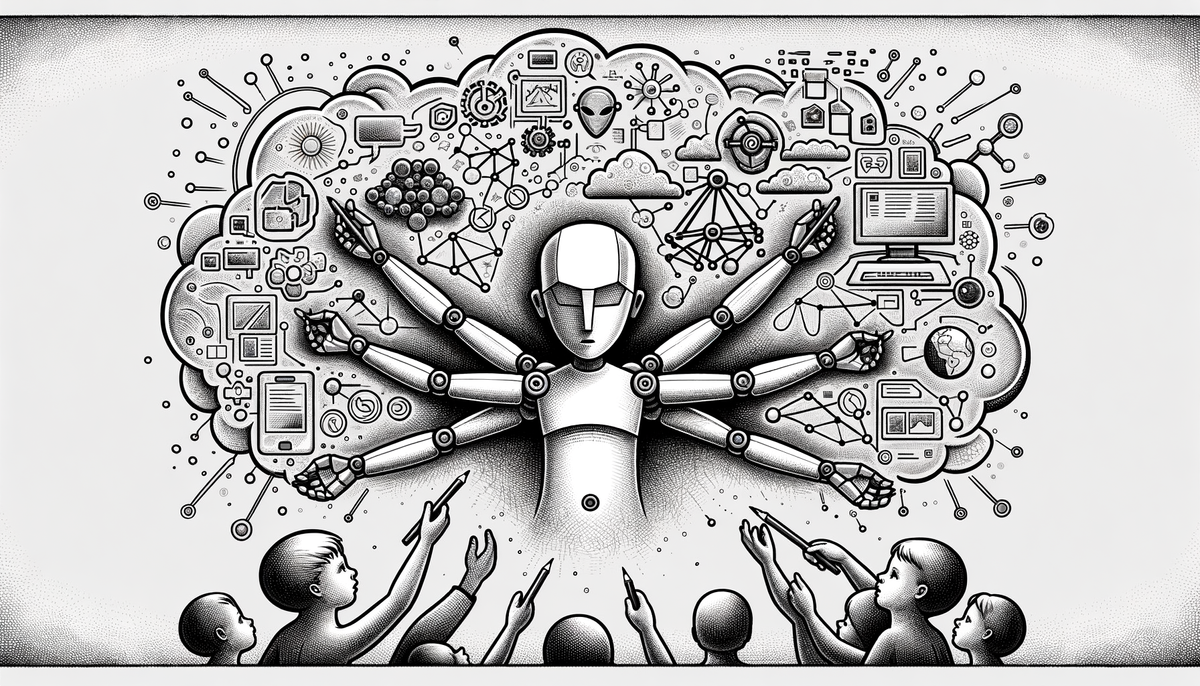Maplebear and the AI Revolution in Advertising

Artificial intelligence (AI) is revolutionizing multiple industries, from commerce and advertising to healthcare and entrepreneurship. Recent advancements highlight AI's transformative potential, akin to the digital revolution of the late 1990s, while also echoing concerns that a similar speculative frenzy could unfold. By unveiling sophisticated tools, fostering development environments, and empowering diverse voices through innovation, AI is reshaping the contemporary landscape across sectors.
The dawn of the AI era bears a striking resemblance to the dot-com boom, with soaring investments paralleling the speculative hype of the late 1990s. Fast-growing entities like Maplebear are at the forefront, using AI to revolutionize advertising by optimizing campaigns with unprecedented precision. Their tools, such as AI-powered landing pages and Universal Campaigns, illustrate AI's capacity to enhance efficiency and personalization in consumer engagement.
However, much like the internet bubble, the rapid growth of AI technologies evokes cautionary tales of past excess. As reported by Bloomberg, AI startups are emerging in droves, with stocks often rising on potential rather than proven models. It is vital for investors to remain judicious and grounded, focusing on sustainable growth and technological responsibility to avoid another market correction.
Amidst this landscape, innovative AI solutions are enhancing not just business strategies but also healthcare. In the UK, an AI-powered physiotherapy app aims to bridge the gap in healthcare accessibility. By automating personalized care plans, this technology offers immediate relief to patients on long waiting lists, yet underscores the irreplaceable value of human oversight.
The convergence of AI and cloud computing is exemplified by NVIDIA-powered AI Workspaces with Kasm on Oracle Cloud, optimizing AI projects with pre-configured environments and advanced GPUs. This suite illustrates the importance of effective infrastructure in realizing AI's potential, enabling developers to focus on innovation rather than orchestration.
AI is not only redefining professional spaces but also empowering marginalized communities. FuturIQ and its founder, Edwina McKennon, illustrate AI's role as a transformative ally for women entrepreneurs. Her mission to educate women on AI's potential for operational efficiency and revenue growth aligns with efforts to address systemic biases within technology development.
“If our era is the next Industrial Revolution, as many claim, AI is surely one of its driving forces.” — Fei-Fei Li
The overarching theme invites us to redefine AI as both a tool and a catalyst for collaborative growth. Yet, as history cautions and current trends suggest, it is crucial to approach this burgeoning field with a blend of optimism and skepticism, ensuring that innovation aligns with ethical, transparent practices.
The landscape of AI is dynamic—its capabilities promising, but also profound in their implications. As Satya Nadella opines, “We are entering a new phase of artificial intelligence.” This era could shape how societies function, from workplace efficiencies like those offered by Maplebear to healthcare breakthroughs and entrepreneurship frontiers championed by visionaries like McKennon.
AI continues to expand its impact, transitioning from mere speculative excitement to practical applications that address real-world needs. As we embrace these changes, the onus is on developers, investors, and users alike to guide AI's evolution, championing a future where technology amplifies human potential rather than replaces it.
Further Readings:




